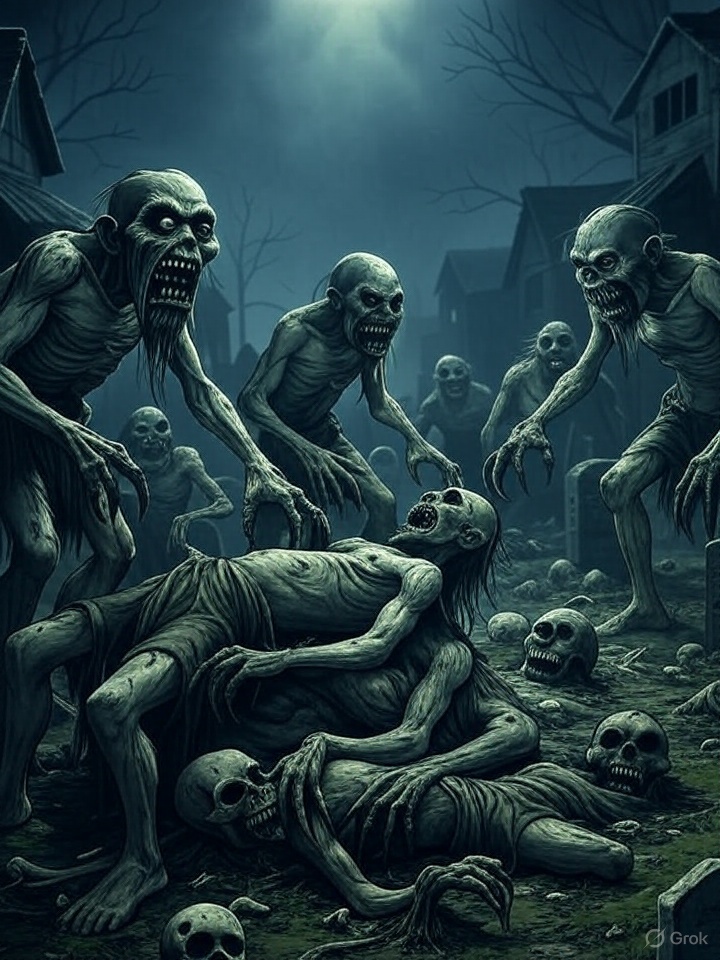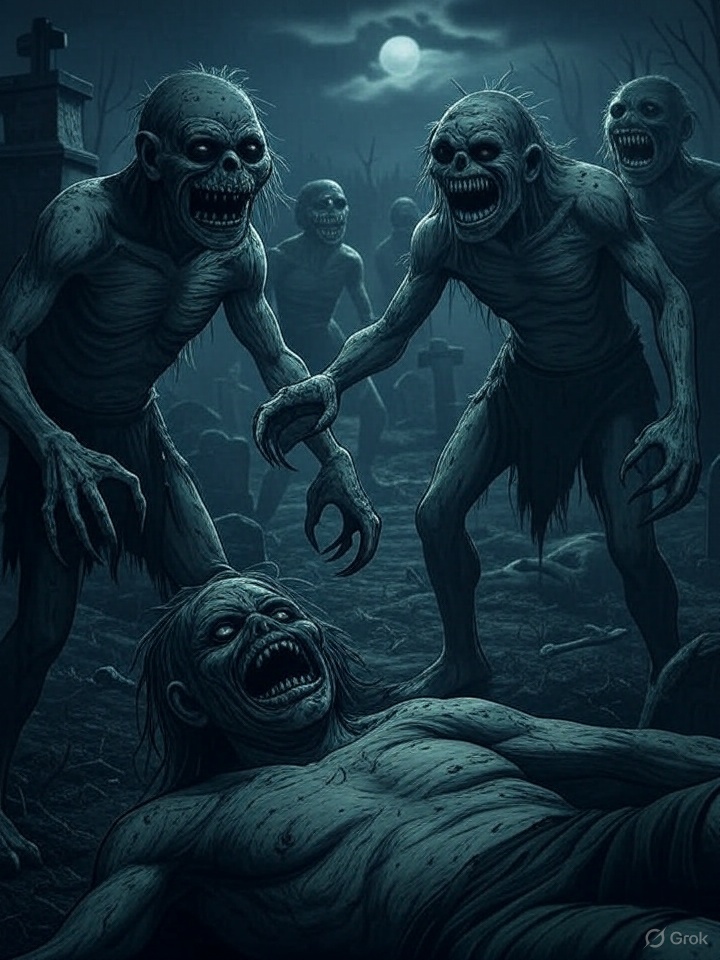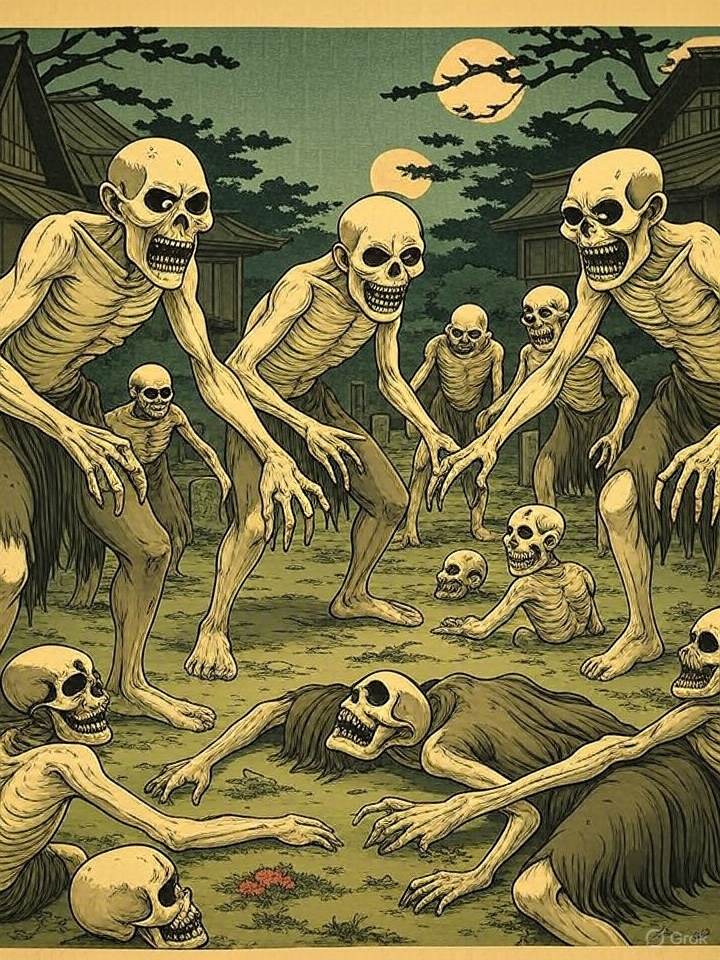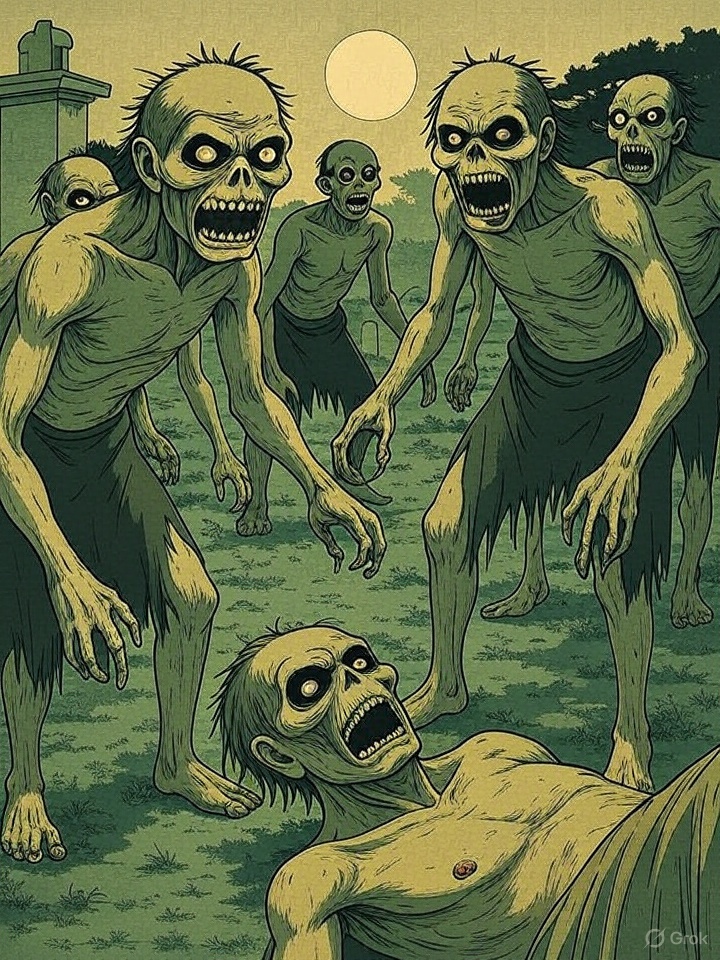Name Meaning
Overview
Jikininki (食人鬼) translates to “human-eating ghost.” These spirits are condemned to devour corpses as punishment for their selfishness or impiety during life.
- Shoku (食) = eat
- Hito (人) = human
- Ki (鬼) = demon or ghost
Origin
- Rooted in Buddhist ghost lore, especially in tales involving monks and funeral rites.
- Most famously described in Lafcadio Hearn’s story “Jikininki.”
Appearance
- Ghastly, decaying humanoid form with sunken eyes and foul stench.
- Sometimes appear as normal humans during the day, revealing their form at night.
Behavior & Myths
- Haunt places of death and prey on corpses during funerals or nighttime burials.
- Driven by endless hunger, yet tormented by their acts and ashamed of their form.
- Can only be released from their curse through prayers or the intervention of holy monks.
Symbolism
- Represents the karmic result of greed and ego.
- A cautionary figure in Buddhist teachings against attachment and pride.
- Symbolizes the grotesque extremes of spiritual punishment.



